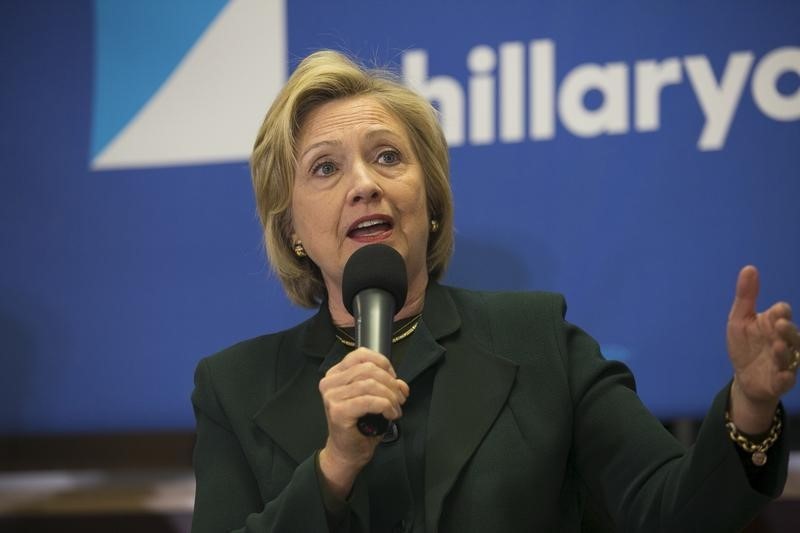(Reuters) - Democratic presidential front-runner Hillary Clinton called on Friday for a series of criminal justice reforms that include a ban on racial profiling by law enforcement and elimination of sentencing disparities for crack and powder cocaine offenses.
At a campaign event in Atlanta, Clinton also promised to sign an order to "ban the box," prohibiting federal employers and contractors from asking about criminal histories at the initial application stage. The change would give job seekers a chance to first prove their qualifications.
"People who have paid their dues to society need to be able to find jobs," Clinton said at a rally at Clark Atlanta University, where she rolled out an "African Americans for Hillary" group and had lunch with a group of black ministers. "We believe in second chances, don't we?"
The proposals were designed to appeal to black voters who will play a crucial role in her campaign for the Democratic Party nomination in the November 2016 election against closest challenger Bernie Sanders, a U.S. senator from Vermont.
Clinton was interrupted briefly by protesters from the Black Lives Matter movement, but pressed on with her speech. The protesters were eventually removed.
She promised to back legislation to ban federal, state and local law enforcement from relying on ethnicity when initiating routine investigations, and change sentencing rules so crack and powder cocaine convictions are treated the same.
All of the changes are aimed at laws that Clinton said disproportionately hurt minorities. Currently, those convicted of using crack face far steeper penalties than powder users.
"We're talking about two forms of the same drug," she said. "It makes no sense to treat them differently."
Crack, the smoked "hard" form of cocaine, is cheaper than the usually snorted powder version and is more widespread in lower-income communities. Government data from 2009 showed nearly 80 percent of those convicted of crack cocaine offenses were black. Powder cocaine users tend to be white.
Sanders said he agreed with Clinton's initiative on ending sentencing disparities but any "serious" criminal justice reform should include his proposal to remove marijuana from the list of the most dangerous drugs outlawed by the federal government, a step Clinton has not endorsed.

"We must recognize that blacks are four times more likely than whites to get arrested for marijuana possession, even though the same proportion of blacks and whites use marijuana," Sanders said in a statement.